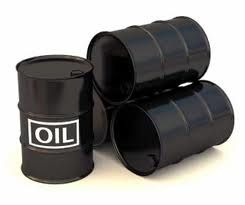
The industrialized world has likely capped oil prices for the rest of the year by releasing emergency reserves, a Reuters poll found, suggesting they have bought
the world economy more time to mend.While most analysts have not formally revised their annual forecasts, a Reuters poll of 30 analysts and traders showed all but one believe Brent crude oil will remain below $120 a barrel through the end of the year after consumer nations released emergency reserves for the third time ever.
Over 80 percent of the 30 respondents said Brent crude oil would remain below $110 a barrel over the next month, suggesting many -- like JP Morgan -- are significantly scaling back their short-term views. In May, a separate Reuters poll of official forecasts showed $110 for the third quarter.
Analysts also see little scope for appreciation later in the year, even as the impact of the 60-million-barrel inventory injection fades, and demand picks up with a recovering economy and the onset of winter in the northern hemisphere.
"Adding 60 million barrels of oil to the market could push down near-term Brent crude oil prices by $10 to $12 a barrel," said analyst David Greely at Goldman Sachs.
"We would expect the release to have less of an impact on prices further out the curve."
Over 85 percent expect Brent to remain below $120 a barrel by December, less than its peak this year in April; nearly a third of those polled see it below $100 a barrel.
Even so, analysts do not expect members of the International Energy Agency to find willing buyers for all the oil: most think less than 75 percent of the 60 million barrels marked for release will eventually be sold.
Besides, the respite from higher prices is not expected to last.
More than half said prices would come roaring back in 2012, averaging between $110 and $130 a barrel over the whole year as the IEA's plan is seen as just a short-term balm against the pace of demand growth outpacing supplies. That's even higher than the forecast $107 in the previous May poll.
"This is price bearish for crude oil today and in the immediate term," said Jason Schenker, president of Prestige Economics in Austin, Texas.
"(But) the fact that the IEA had to go to these lengths in the second year of an expanding business cycle says something very bullish about crude oil prices in the medium and long-term."
More than 55 percent of the analysts polled said Brent would average between $110 and $130 a barrel over the course of 2012. So far in 2011, Brent has averaged around $111 a barrel threatening to slow a fragile global economy.
The release is expected to act as a catalyst for stronger growth next year.
"We would start to become a cautious buyer of Brent below $100 and would become a more aggressive buyer as Brent approaches $90," said Michael Wittner, a former analyst at the IEA now at Societe Generale in New York.
Wittner said hedging would pick up from large consumers like airlines and industrial users once prices dropped below $100 a barrel, while investor bargain hunting would also help stabilise prices eventually.
WHEN THE REBOUND COMES
With the possibility remaining high that Libyan crude will not resurface in 2012, analysts still anticipate a tight market and remain bullish on prices in the coming year.
About 60 percent of the analysts and traders polled expect the price of a barrel of crude to bounce back above $110, while about 10 percent expect prices between $120 and $130 a barrel.
"The bottom line is that this release provides a welcome short-term economic stimulus at a time when the world economy could do with a boost," said Lawrence Eagles at J.P. Morgan in New York, another former IEA analyst.
"Should the Libyan disruption turn into a chronic outage, the IEA will at some point have to wean consumers off the reserve release."
The IEA has indicated it may extend the crude sales for a second month if demand remains adequate and prices do not fall sharply.
While the agency had launched a new period in its history by showing willingness to use its reserves as a "weapon" in the face of higher prices, analysts say the IEA cannot use its stockpiles to keep prices down indefinitely.
Some also said the agency has risked provoking major producers like Saudi Arabia, though reports suggest OPEC's largest exporter was consulted by the United States ahead of the announcement .
Analysts at Barclays Capital said the IEA's decision "sends the incorrect signal" to major producers, with whom the agency has enjoyed better relations in recent years.
"The net result will likely be lower Saudi volumes by the end of 2011, and once the temporary stock release is over, the flow of Saudi Arabian crude could dry up, tightening up balances by year-end and into 2012," Barcap analyst Paul Horsnell said.
Source: Reuters
We use cookies to improve your experience. By continuing to use our site, you accept our Cookies, Privacy Policy,Terms and Conditions. Close X